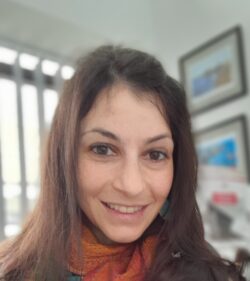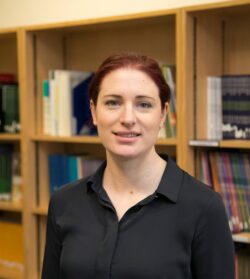Workshop 2: Equ(al)ity, Diversity, and Inclusion in Language Assessment: Perspectives from Research & Practice
Nahal Khabbazbashi & Amy Devine
Intended learning outcomes
The overall aim of the course is for participants to reflect on EDI issues in relation to language learning and assessment with the objective of creating fair and inclusive assessments solutions that meet the diverse needs of learners .
The intended learning outcomes are for participants to:
- gain a better understanding of theoretical concepts and practical issues related to EDI as well as the notion of social justice as a possible lens/stance through which to examine assessments;
- have an increased awareness of the diverse needs of learners/test takers in relation to background characteristics such as race, gender, sexual orientation, socio-economic status, special needs, and digital literacy levels amongst others;
- become familiar with frameworks/research/methods for critically evaluating assessments for any implicit/explicit sources of bias, procedures for minimising bias, and approaches for creating more inclusive assessments that best support the diverse needs of learners/test takers;
- consolidate what they have learned through the workshops by working with real-world examples both from their own assessment context(s) as well as those from other participants; and
- develop a better understanding of current/future challenges and opportunities that technologies and AI can bring in relation to EDI in assessment.
Workshop Content
The workshop will be divided into four interrelated sessions:
Session 1 – Power & Assessment: this session will focus on critical language testing and issues of power, fairness, equality, equity, and social justice.
Session 2 – Evaluating Tests as Cultural Artefacts: this session will focus on the ways in which the content of tests in terms of their audio, visual, and textual features may serve as carriers of implicit/explicit bias.
Session 3 – Designing Inclusive Tests: this session will focus on guidelines/practical suggestions for creating assessment materials that are more inclusive and better meet the needs of diverse learners.
Session 4 – EDI in practice : in this session we will ask all workshop participants to bring examples of assessment materials from their own context(s). In groups, participants will be asked to scrutinise the materials drawing on the topics covered in the workshop and to suggest modifications/revisions to the materials and/or the design of alternative solutions. This will allow for a consolidation of the workshop content and also encourage better familiarity with diverse assessment contexts.
Method
Our sessions will be interactive with many opportunities for paired/group work and discussions. We will be working with examples from existing assessments/practice tests/training materials in order to ground the workshop in real-world contexts. Participants will also be asked to share their own materials (if available) so that the course content could be better tailored to their assessment contexts. The teaching content will be research-led drawing on the latest and most relevant empirical research on the topics covered.
Pre-workshop activities
Participants will be given a select number of suggested readings. They will also be asked to select specific assessment material(s) that they would like to evaluate from an EDI perspective and to send it to the organisers in advance of the workshop.









